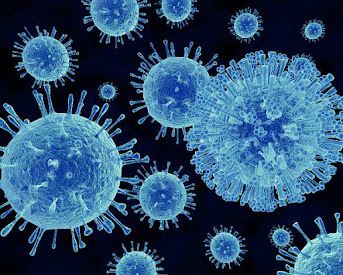Norovirus cases have risen again in the UK, according to NHS figures.
The number of patients hospitalized with diarrhea, vomiting, or norovirus symptoms rose from 371 in the past week to 393.
Norovirus cases continue to rise this week - do you know the signs to look for?
1. Norovirus cases continue to rise this week - do you know the signs to look for? Credit: Getty - Contributor
This time last year, the number was 316.
For the fourth week since the beginning of the year, influenza cases have increased.
Until January, parents are advised to teach their children good hygiene before returning to school.
Last week it was revealed that infections were higher than the five-season average and higher than pre-Covid levels.
Also, the number of hospital admissions by ambulance to A&E increased from 77,937 to 78,431 in the last week.
The number of people calling 111 for advice about their symptoms increased from 316,394 to 331,206.
Bed occupancy remained at 93.8 percent last week, in line with the level reported last week.
NHS Chief Medical Officer Professor Stephen Powis said the NHS was under significant pressure.
"Last week more people were taken to A&E by ambulance, more beds were occupied than the week before, and hospital numbers rose by almost 14,000 (13,983), while illnesses such as flu and norovirus remain a real concern.
Richard Elson, from Health Safety England, said: "Laboratory reports of norovirus are now around three times higher than we used to see, with cases peaking in people over 65.
"Children's homes are also breeding grounds for the virus. It is now very important not to visit vulnerable people, such as hospitals or nursing homes if you have symptoms of norovirus."
Norovirus symptoms come on and the main NHS symptoms are:
.feel sick (nausea)
.diarrhea
.being sick (vomiting)
.high temperatures can also occur
.headache
.hands and feet hurt
Symptoms start one or two days after infection.
If you are sick, the best thing to do is rest and drink plenty of fluids to prevent dehydration.
How to protect yourself from norovirus
Norovirus can be nasty, but there are ways to prevent yourself and your family from getting sick.
Pay attention to hygiene - wash your hands often with soap and water
Avoid close contact with sick people
If you or someone in your household is sick:
Try to keep people with symptoms away from others until the illness subsides within 48 hours
Clean - Disinfect contaminated surfaces or objects
Wash soiled clothes or bedding with high-temperature detergent (60C).
Do not let sick people prepare food for other people
Anyone with symptoms should drink fluids and stay hydrated. Consider adding rehydration salts to the water. Eat regular meals (if possible).
Get medical attention if symptoms do not improve after 24 hours or if there is a concern. This is especially important for young children and the elderly because they are prone to dehydration.
After two or three days you will start to feel better.
Norovirus spreads very and you can get it if you are in close contact with someone who is sick.
You can also get infected if you touch surfaces or objects that have the virus, such as if you touch your mouth.
Eating foods that have been prepared or processed by people who use wheat also increases your risk of getting it.


Comments
Post a Comment